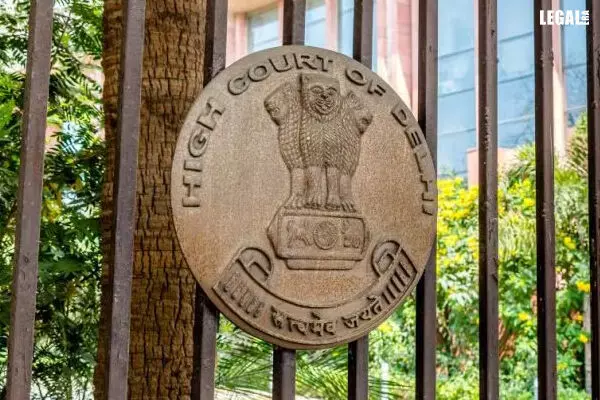- Home
- News
- Articles+
- Aerospace
- Agriculture
- Alternate Dispute Resolution
- Banking and Finance
- Bankruptcy
- Book Review
- Bribery & Corruption
- Commercial Litigation
- Competition Law
- Conference Reports
- Consumer Products
- Contract
- Corporate Governance
- Corporate Law
- Covid-19
- Cryptocurrency
- Cybersecurity
- Data Protection
- Defence
- Digital Economy
- E-commerce
- Employment Law
- Energy and Natural Resources
- Entertainment and Sports Law
- Environmental Law
- FDI
- Food and Beverage
- Health Care
- IBC Diaries
- Insurance Law
- Intellectual Property
- International Law
- Know the Law
- Labour Laws
- Litigation
- Litigation Funding
- Manufacturing
- Mergers & Acquisitions
- NFTs
- Privacy
- Private Equity
- Project Finance
- Real Estate
- Risk and Compliance
- Technology Media and Telecom
- Tributes
- Zoom In
- Take On Board
- In Focus
- Law & Policy and Regulation
- IP & Tech Era
- Viewpoint
- Arbitration & Mediation
- Tax
- Student Corner
- AI
- ESG
- Gaming
- Inclusion & Diversity
- Law Firms
- In-House
- Rankings
- E-Magazine
- Legal Era TV
- Events
- News
- Articles
- Aerospace
- Agriculture
- Alternate Dispute Resolution
- Banking and Finance
- Bankruptcy
- Book Review
- Bribery & Corruption
- Commercial Litigation
- Competition Law
- Conference Reports
- Consumer Products
- Contract
- Corporate Governance
- Corporate Law
- Covid-19
- Cryptocurrency
- Cybersecurity
- Data Protection
- Defence
- Digital Economy
- E-commerce
- Employment Law
- Energy and Natural Resources
- Entertainment and Sports Law
- Environmental Law
- FDI
- Food and Beverage
- Health Care
- IBC Diaries
- Insurance Law
- Intellectual Property
- International Law
- Know the Law
- Labour Laws
- Litigation
- Litigation Funding
- Manufacturing
- Mergers & Acquisitions
- NFTs
- Privacy
- Private Equity
- Project Finance
- Real Estate
- Risk and Compliance
- Technology Media and Telecom
- Tributes
- Zoom In
- Take On Board
- In Focus
- Law & Policy and Regulation
- IP & Tech Era
- Viewpoint
- Arbitration & Mediation
- Tax
- Student Corner
- AI
- ESG
- Gaming
- Inclusion & Diversity
- Law Firms
- In-House
- Rankings
- E-Magazine
- Legal Era TV
- Events
Delhi High Court Issues Interim Order Against Counterfeit “Kaplan Schweser” Materials

Delhi High Court Issues Interim Order Against Counterfeit “Kaplan Schweser” Materials
US-based educational services company Kaplan has initiated legal action in the Delhi High Court against individuals involved in the distribution of counterfeit versions of its widely used “Kaplan Schweser” books and study materials.
The Delhi High Court has issued an interim order prohibiting the unauthorized sale and misuse of Kaplan's trademark and copyrighted content. Following this, local commissioners conducted raids at seven locations linked to the defendants, resulting in the seizure of a significant quantity of counterfeit “Kaplan Schweser” materials, including both physical books and digital files.
Yael Augang, General Counsel at Kaplan, reported that thousands of materials were confiscated during the operation. She emphasized that this legal action marks a crucial step in Kaplan's efforts to safeguard its intellectual property rights within the Indian market. Augang highlighted the company's commitment to combating counterfeiting and protecting its copyrights and trademarks as part of a broader initiative.
"Protecting our IP is an ongoing priority for Kaplan globally," Augang stated. Ashley Pomonis, Executive Director of Legal, Intellectual Property, and Corporate Governance at Kaplan, reinforced the company's dedication to ensuring that students and professionals access only authentic, high-quality educational resources.
The case is currently pending in court, with Pomonis noting that Kaplan is actively seeking a summary judgment against several defendants to expedite the resolution process and uphold the integrity of its educational offerings.
"This decisive action sends a clear message that Kaplan is fully prepared to vigorously defend its intellectual property and will not hesitate to take legal action against those who infringe on its trademarks or unlawfully use or reproduce its copyrighted materials," Pomonis added.
Kaplan operates in 27 countries and serves approximately 1.2 million students and professionals, 15,000 corporate clients, and 3,300 educational institutions, including schools, school districts, colleges, and universities worldwide, focusing on accountancy, finance, data, and technology.



